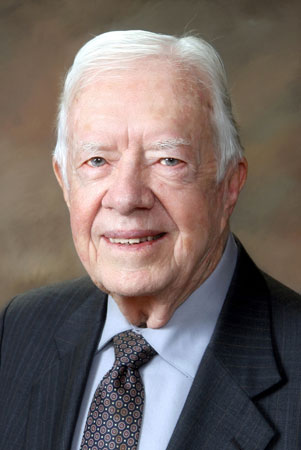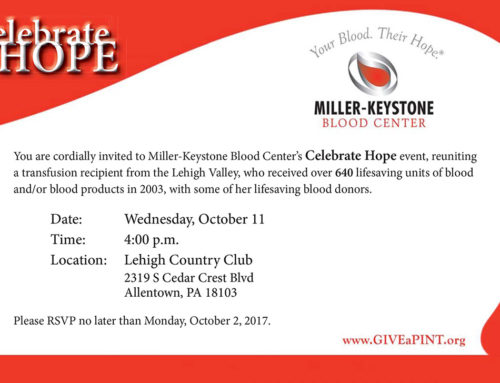 Jimmy Carter, 39th President of the United States, will deliver an address at Lafayette College 4 p.m. Monday, April 22.
Jimmy Carter, 39th President of the United States, will deliver an address at Lafayette College 4 p.m. Monday, April 22.
The address is scheduled to be held outdoors on the Quad. The rain location is Kamine Gymnasium. If it is held on the Quad, no tickets will be required. If the address is held in Kamine Gym, tickets will be required.
Information on ticketing for the event will be announced when details are finalized.
Carter will speak about his work on behalf of human rights, democracy, and peace at the Carter Center since its founding in 1982. His address will inaugurate Lafayette’s Robert and Margaret Pastor Annual Lecture Series in International Affairs, established in honor of Robert Pastor ’69. Pastor is a professor of international relations and director of the Center for North American Studies and the Center for Democracy and Election Management at American University. A former U.S. national security adviser for Latin America, he also was a senior fellow and director of programs on democracy, Latin America, and China at the Carter Center.
Among the significant foreign policy accomplishments of Carter’s administration (1977-81) are the Panama Canal treaties, the Camp David Accords, the treaty of peace between Egypt and Israel, the SALT II treaty with the Soviet Union, and the establishment of U.S. diplomatic relations with the People’s Republic of China. He championed human rights throughout the world.
On the domestic side, the administration’s achievements included a comprehensive energy program conducted by a new Department of Energy; deregulation in energy, transportation, communications, and finance; major educational programs under a new Department of Education; and major environmental protection legislation, including the Alaska National Interest Lands Conservation Act.
Among many other honors, he was awarded the 2002 Nobel Peace Prize, for “decades of untiring effort to find peaceful solutions to international conflicts, to advance democracy and human rights, and to promote economic and social development.”
The author of 27 books, Carter became University Distinguished Professor at Emory University in 1982 and founded the Carter Center in the same year. Actively guided by Carter, the nonpartisan, nonprofit center addresses national and international issues of public policy. Fellows, associates, and staff of the center join with Carter in efforts to resolve conflict, promote democracy, protect human rights, and prevent disease and other afflictions. Through the Global 2000 programs, the center advances health and agriculture in the developing world. It has spearheaded the international effort to eradicate Guinea worm disease, which will be the second disease in history to be eliminated.
Carter and the Carter Center have engaged in conflict mediation in Ethiopia and Eritrea (1989), North Korea (1994), Liberia (1994), Haiti (1994), Bosnia (1994), Sudan (1995), Great Lakes region of Africa (1995-96), Sudan and Uganda (1999), Venezuela (2002-03), Nepal (2004-08), and Ecuador and Colombia (2008). The center has sent 83 election-monitoring missions to the Americas, Africa, and Asia. These include Panama (1989), Nicaragua (1990), Guyana (1992), China (1997), Nigeria (1998), Indonesia (1999), East Timor (1999), Mexico (2000), Guatemala (2003), Venezuela (2004), Ethiopia (2005), Liberia (2005), Democratic Republic of the Congo (2006), Nepal (2008), Lebanon (2009), Sudan (2010), Tunisia (2011), and Egypt (2011-12).
The permanent facilities of the Carter Presidential Center were dedicated in October 1986, and include the Jimmy Carter Library and Museum, administered by the National Archives. Also open to visitors is the Jimmy Carter National Historic Site in Plains, Ga., administered by the National Park Service.
Carter was born Oct. 1, 1924, in the small farming town of Plains and grew up in the nearby community of Archery. His father, James Earl Carter Sr., was a farmer and businessman, and his mother, Lillian Gordy Carter, a registered nurse.
He was educated in the public school of Plains, attended Georgia Southwestern College and Georgia Institute of Technology, and received a bachelor of science degree from the United States Naval Academy in 1946. In the Navy, he became a submariner, serving in both the Atlantic and Pacific fleets and rising to the rank of lieutenant. Chosen by Admiral Hyman Rickover for the nuclear submarine program, he was assigned to Schenectady, N.Y., where he took graduate work at Union College in reactor technology and nuclear physics and served as senior officer of the pre-commissioning crew of the Seawolf, the second nuclear submarine.
On July 7, 1946, he married Rosalynn Smith of Plains. When his father died in 1953, he resigned his naval commission and returned with his family to Georgia. He took over the Carter farms, and he and Rosalynn operated Carter’s Warehouse, a general-purpose seed and farm supply company in Plains. He quickly became a leader of the community, serving on county boards supervising education, the hospital authority, and the library.
In 1962 Carter won election to the Georgia Senate. He lost his first gubernatorial campaign in 1966, but won the next election, becoming Georgia’s 76th governor Jan. 12, 1971. He was the Democratic National Committee campaign chairman for the 1974 congressional and gubernatorial elections. On Dec. 12, 1974, he announced his candidacy for president of the United States. He won his party’s nomination on the first ballot at the 1976 Democratic National Convention and was elected president Nov. 2, 1976.
Jimmy and Rosalynn Carter volunteer one week a year for Habitat for Humanity. He also teaches Sunday school at Maranatha Baptist Church of Plains. For recreation, he enjoys fly-fishing, woodworking, and swimming.


Leave A Comment